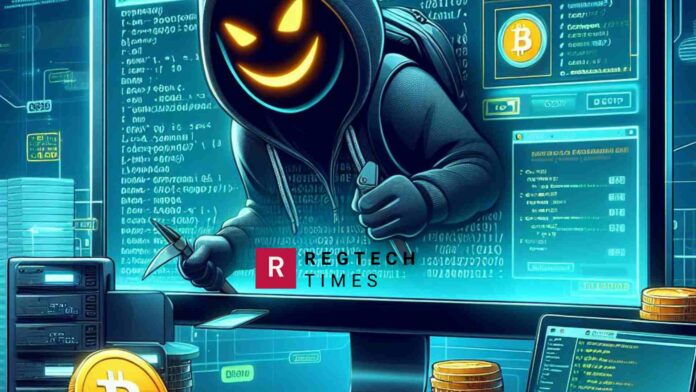United States prosecutors have unveiled charges against Charles O. Parks III, known as “CP3O,” alleging his involvement in a sprawling illegal cryptojacking operation that defrauded two cloud computing providers. According to the Brooklyn U.S. Attorney’s Office, Parks faces wire fraud and money laundering charges, with potential sentencing of up to 50 years in prison.
The indictment accuses Parks of orchestrating a sophisticated scheme from approximately January to August 2021, during which he allegedly exploited cloud computing resources belonging to two prominent firms without authorization.
CP3O LLC
Parks allegedly created fake corporate identities such as “MultiMillionaire LLC” and “CP3O LLC” to open numerous accounts with cloud service providers, gaining access to substantial computing power.
The alleged cryptojacking operation is said to have mined cryptocurrencies worth $970000, including Ether (ETH), Litecoin (LTC), and Monero (XMR), utilizing the resources of the cloud computing providers worth $3.5 millions without remuneration.
What is Cryptojacking?
This illicit activity underscores the growing threat of cryptojacking, a practice whereby perpetrators illicitly harness computing power or electricity to mine cryptocurrencies.
Cryptojacking is the unauthorized use of someone else’s computer, smartphone, or other internet-connected device to mine cryptocurrency. In simpler terms, it’s the act of secretly using someone else’s computing resources to mine cryptocurrencies like Bitcoin, Ethereum, or Monero without their consent.
This can occur through various means, including malware-infected websites, phishing emails, or malicious software that’s installed on a victim’s device without their knowledge. The goal of cryptojacking is to harness the victim’s computing power to generate cryptocurrencies for the attacker, often without the victim realizing their device is being used in such a manner. It can result in increased electricity usage, slower device performance, and potential damage to the device over time.
Parks was apprehended in Nebraska on April 13 and now faces a litany of charges, including wire fraud, money laundering, and engaging in unlawful monetary transactions. His arraignment is scheduled for April 16 in an Omaha federal court.
In a bid to obscure the origins of his ill-gotten gains, Parks is alleged to have laundered some of the mined cryptocurrencies through various channels, including a decentralized cryptocurrency exchange and a New York City-based nonfungible token (NFT) marketplace. Additionally, he is accused of structuring payments to evade federal reporting requirements, with prosecutors noting instances where Parks allegedly moved sums just below the $10,000 threshold from the crypto exchange to bank accounts.
Prosecutors claim that Parks indulged in extravagant spending, including luxury vehicles, jewellery, and high-end travel accommodations, using the proceeds from his illicit activities. Brooklyn U.S. Attorney Breon Peace emphasized the commitment of law enforcement to combat technologically enabled financial crimes, stating, “This Office will continue to prioritize prosecuting criminal actors who use new, sophisticated technology to engage in the old scheme of fraud and deceit.”
The case against Parks highlights the increasing prevalence of cybercrimes in the digital age and serves as a warning to individuals seeking to exploit emerging technologies for personal gain. As authorities intensify their efforts to combat such illicit activities, perpetrators of cryptojacking and related offenses face severe consequences, including lengthy prison sentences and substantial fines.


